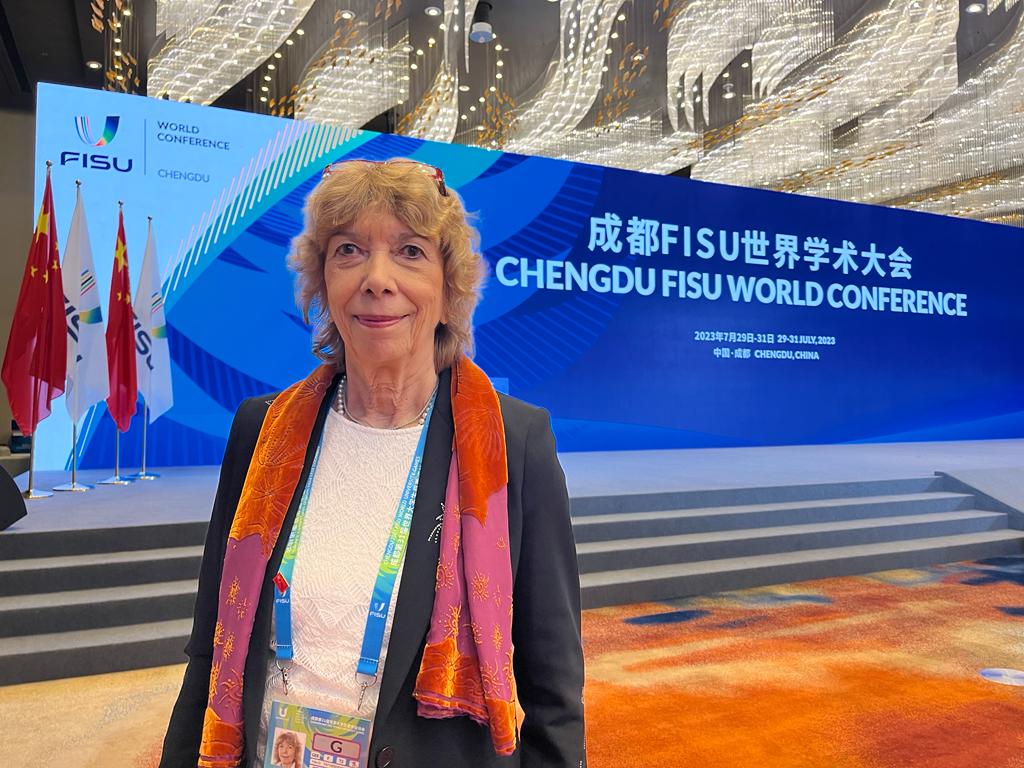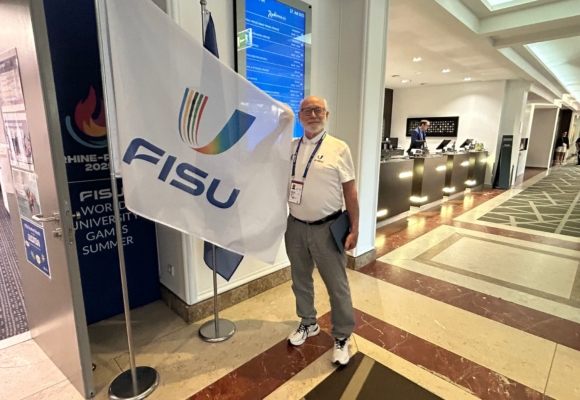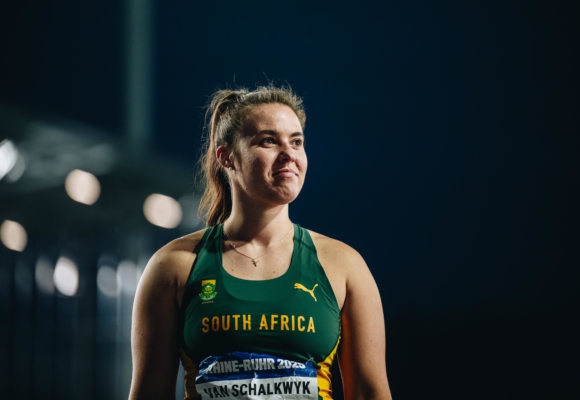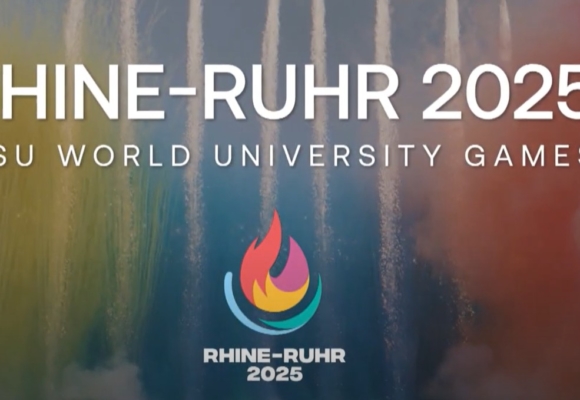Sport should be visible in art, there is no need to be worried about smartphones, and the city of the future will be full of athletic events.
These are the main conclusions of the three-day FISU World Conference, held as part of the Chengdu FISU World University Games, which came to a close on Sunday at the Wenjiang Crowne Plaza Hotel.
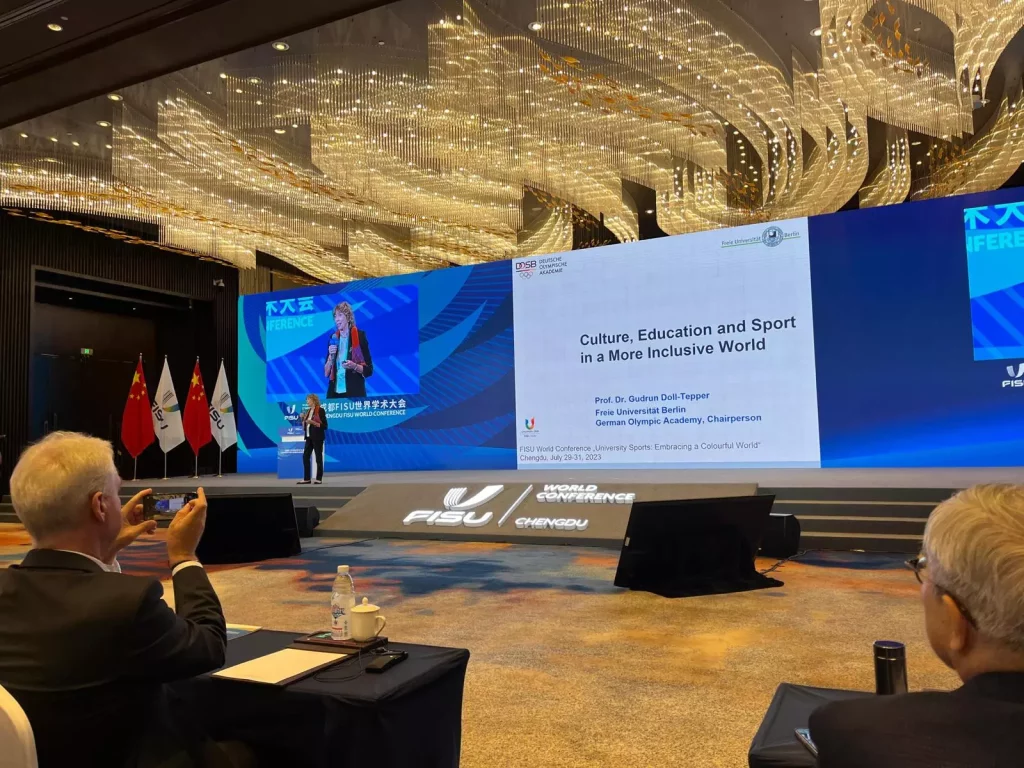
“Sports culture and education are essential pillars of the Olympic movement,” said Dr. Gudrun Doll-Tepper, Honorary President of the International Council of Sport Science and Physical Education, and Chairperson of the German Olympic Academy.
Whereas the first day focused more on sporting events in general, and the second touched essentially on health, the third one was dedicated to the relationship between sports and three different areas: culture and education, technology, and urbanism.
“Sports, education and arts are very important in itself,” added Dr. Doll-Tepper after her speech. “But we need try to establish collaborations between them, because sometimes we see them too separately. We can do it by organising sports film festivals or opening new museums.
“In Chengdu, the hosts took the art into the athletes’ village. I hope to see similar things also at future FISU Games.”
Attracting people to take up sports activities by using cultural tools wasn’t the only idea that came up on Monday.
Georges Nassis, Professor of College of Education of United Arab Emirates University, gave an interesting perspective on the correlation between sports and technology.
“We can improve students’ engagement in physical education classes by using applications that the students would seriously like, and which would promote physical activity among this group.
“Artificial Intelligence can help with that. The most important is to find the balance and use this technology appropriately”, said the Greece-born scientist.
The afternoon session concentrated more on the impact of big-scale sporting events on city development. To describe this relationship, Professor Kozo Tomiyama from Osaka University of Health and Sports Sciences, used an interesting case of his native Japan.
“Due to sporting event, many people come to the city. They may not stay there forever, but can give the opportunity of valuable social exchange,” said the Acting Chairman of the Third Osaka Sport Revitalisation Plan Formulation Subcommittee.
In the final part of the day, the participants listened to conclusions of the conference that were presented by Donna Spethman, a Member of the FISU Education Committee.
“The conference focused on several different themes. But in the end, it is our responsibility to make this change happen,” she summarized.
The conference’s closing ceremony was filled with speeches from the hosts and FISU officials.
Eventually, it was essential to look into the future. And that is why the conference was concluded with a brief presentation by Joerg Forerster from the Organising Committee of the Rhine-Ruhr 2025 FISU Games.
Written by Piotrek Przyborowski, FISU Young Reporter
